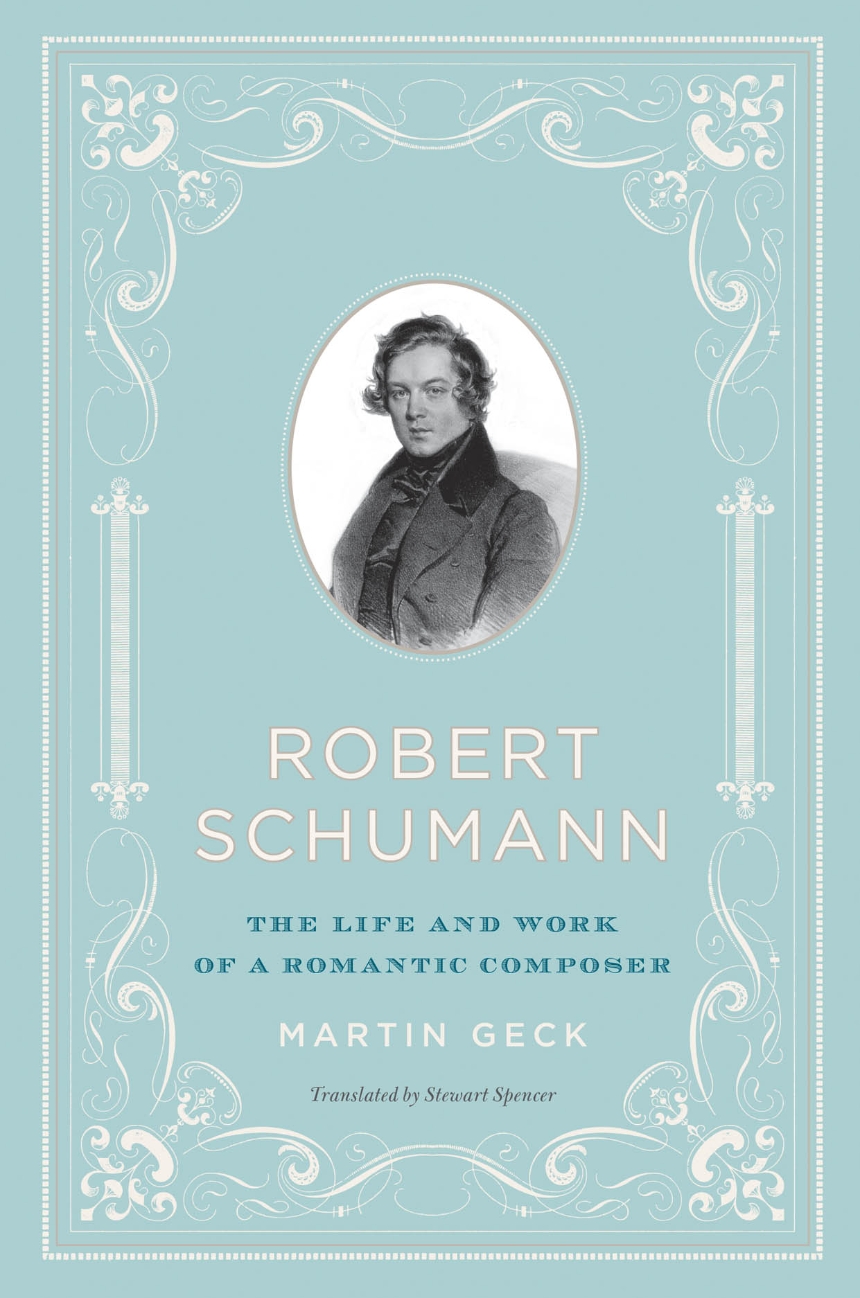Robert Schumann
The Life and Work of a Romantic Composer
Robert Schumann (1810–56) is one of the most important and representative composers of the Romantic era. Born in Zwickau, Germany, Schumann began piano instruction at age seven and immediately developed a passion for music. When a permanent injury to his hand prevented him from pursuing a career as a touring concert pianist, he turned his energies and talents to composing, writing hundreds of works for piano and voice, as well as four symphonies and an opera. Here acclaimed biographer Martin Geck tells the fascinating story of this multifaceted genius, set in the context of the political and social revolutions of his time.
The image of Schumann the man and the artist that emerges in Geck’s book is complex. Geck shows Schumann to be not only a major composer and music critic—he cofounded and wrote articles for the controversial Neue Zeitschrift für Musik—but also a political activist, the father of eight children, and an addict of mind-altering drugs. Through hard work and determination bordering on the obsessive, Schumann was able to control his demons and channel the tensions that seethed within him into music that mixes the popular and esoteric, resulting in compositions that require the creative engagement of reader and listener.
The more we know about a composer, the more we hear his personality in his music, even if it is above all on the strength of his work that we love and admire him. Martin Geck’s book on Schumann is not just another rehashing of Schumann’s life and works, but an intelligent, personal interpretation of the composer as a musical, literary, and cultural personality.
320 pages | 23 halftones, 8 line drawings | 6 x 9 | © 2012
Literature and Literary Criticism: Germanic Languages
Music: General Music
Reviews
Table of Contents
Prologue
Chapter 1. Early Years (1810–28)
Intermezzo I. An Awkward Age
Chapter 2. Student Years (1828–34)
Intermezzo II. Figments of the Imagination
Chapter 3. The Neue Zeitschrift für Musik
Chapter 4. The Early Piano Pieces
Intermezzo III. “No, What I Hear Are Blows”
Chapter 5. Probationary Years in Leipzig (1835–40)
Chapter 6. The “Year of Song” (1840)
Intermezzo IV. Twilight
Chapter 7. Married Life in Leipzig—Visit to Russia (1840–44)
Intermezzo V. The Magic of Allusions
Chapter 8. Schumann as a Public Figure in the Years before the March Revolution of 1848
Intermezzo VI. In modo d’una marcia
Chapter 9. The Dresden Years (1845–50)
Intermezzo VII. Genoveva Is Not Lohengrin
Chapter 10. Director of Music in Düsseldorf (1850–54)
Intermezzo VIII. The Road to Freedom
Chapter 11. The Late Works
Intermezzo IX. A “Sugary Saxon”?
Chapter 12. Endenich (1854–56)
Intermezzo I. An Awkward Age
Chapter 2. Student Years (1828–34)
Intermezzo II. Figments of the Imagination
Chapter 3. The Neue Zeitschrift für Musik
Chapter 4. The Early Piano Pieces
Intermezzo III. “No, What I Hear Are Blows”
Chapter 5. Probationary Years in Leipzig (1835–40)
Chapter 6. The “Year of Song” (1840)
Intermezzo IV. Twilight
Chapter 7. Married Life in Leipzig—Visit to Russia (1840–44)
Intermezzo V. The Magic of Allusions
Chapter 8. Schumann as a Public Figure in the Years before the March Revolution of 1848
Intermezzo VI. In modo d’una marcia
Chapter 9. The Dresden Years (1845–50)
Intermezzo VII. Genoveva Is Not Lohengrin
Chapter 10. Director of Music in Düsseldorf (1850–54)
Intermezzo VIII. The Road to Freedom
Chapter 11. The Late Works
Intermezzo IX. A “Sugary Saxon”?
Chapter 12. Endenich (1854–56)
Epilogue
Notes
Bibliography
Index
Bibliography
Index
